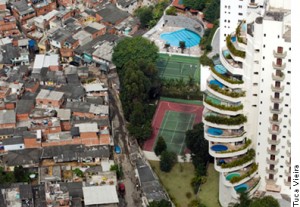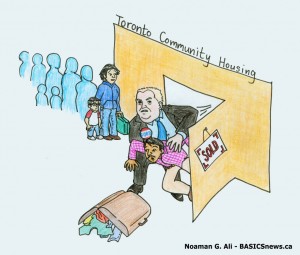Tim Koechlin (International Studies and Urban Studies
Stephanie Osei-Sarpong (Vassar ’15, Education Major)
Our research this summer has focused on “urban inequality” – its meaning, its causes, and its implications. This research will provide the foundation for an Urban Studies seminar that Professor Koechlin will teach in the Spring of 2014, “Advanced Debates in Urban Studies: Urban Inequality” (URBS 303). It will also inform a paper that Professor Koechlin will present at the meetings of the American Social Sciences Association (ASSA) in Philadelphia in January, 2014.
The United States is the most unequal of the world’s rich countries and, over the past few decades, the US has become dramatically more unequal. The US is also near the bottom of the list when it comes to economic and social mobility, despite its reputation as the “land of opportunity.” This increasing economic inequality is reflected in and reinforced by unsettling levels of political, racial, gender, spatial, legal, educational, and environmental inequality – and more. Inequality begets inequality. On a global scale, this story of interdependent inequalities is even more extreme and appalling.
As centers of political power and capital accumulation, cities have long been sites of socio-economic, spatial, racial and other forms of inequality. The reproduction of inequality – in the US and elsewhere – happens, to a considerable extent, in cities and by urban processes. URBS 303 is designed to allow (and force) students to explore the complicated, layered inequality that characterizes cities. How is economic inequality linked – as cause and effect – to political, educational and spatial inequality? How are these inequalities reflected in and reinforced by the built environment? How is inequality within cities linked to globalization, and to neo-liberal policies in the US? How can we intervene, to make our cities more equal and more “just”? How can urban residents articulate and assert their “right to the city”? And how do the answers to these questions vary from city to city?
Over several weeks, we gathered books, articles, data and images. We studied them, we sorted them, and we discussed them. We had long talks about pedagogy, and about the various means by which a teacher, student or scholar might “tell a story” about urban inequality. And, finally, we drafted a very rich syllabus for URBS 303, and a promising outline for Professor Koechlin’s paper, “Urban Inequality, Neo-liberalism, and the Case for a Multidisciplinary Economics”…and we learned a lot along the way.


